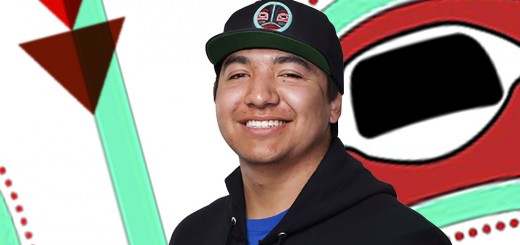Rebecca Donnelly Invites You to Put On a Show
2015 MLIS graduate Rebecca Donnelly’s middle-grade novel debut,How To Stage a Catastrophe (Capstone Young Readers, 2017), is raking in accolades from Kirkus Reviews, Booklist, School Library Journal, booksellers and readers alike for its wit, captivating characters and inspiring message: keep dreams alive. A native of England, Donnelly currently lives and works in upstate New York, where she directs the Norwood Public Library. She talked with WSQ about her dual careers of librarian and writer, her close friend revision and that all-important cup of tea.

How to Stage A Catastrophe by Rebecca Donnelly
What are some of the challenges of writing for children versus adults?
Any children’s writer worth his or her salt will begin by telling you that children are much better readers than adults. They are expansive and generous when they love something, but they do not suffer fools gladly. So, when you write for kids, you have to be your very best. Kids aren’t reading for show; they’re not trying to impress anyone by tackling a book they don’t like. They’re reading because it’s a huge part of how they learn about themselves and their world. So you can take on serious themes and use big words and clever plot structures and all that, but you have to do it in a way that brings them in and shows that you respect their abilities and their experiences.
Describe the where and when moment you decided to embark on How to Stage a Catastrophe. Had you written for a middle-grade audience previously?
I had one middle grade novel previously under contract, but that deal fell apart, as deals sometimes do. It was while I was first querying agents with that initial book that I began How to Stage a Catastrophe, because it’s a good idea to stay busy if you want to write for a living. I came up with the premise of a group of kids trying to save a children’s theater because that was the only real activity I did as a kid. I was in a few plays at Alameda Children’s Musical Theater—I grew up in Alameda, which is right next to Oakland. Although I never went back to theater after that, I always loved the idea of theater: the group setting, the focus, the artistry. It’s an ideal setup for a story, because you have a lot of vibrant personalities and a lot of, well, theatrics.
Talk a bit about your writing practice. Do you have a favorite place/preferred time to write? Is revision your friend or nemesis?
My preferred place and time to write is all day, in solitude, somewhere near tea and a good hiking path for when I need a break. In reality, though, I usually write at my kitchen table for half an hour in the mornings, but not every morning. I do have tea, and I’m usually the first one up, and there is a great trail nearby but I hardly ever have time to hike it. I consider myself very lucky to have a short work week—I work 30 hours a week—so I have Mondays free for writing, and I try to make the most of them.
Revision is one of my closest friends—along with my agent’s feedback and a lot of patience. Things rarely come out perfectly the first time around, and even if they seem perfect, you might discover as you continue to write that your perfect line or your perfect scene no longer fits what the story has become. I’m not an outliner, so I’m really figuring out what my story is as I write it, and that means a lot of going back and changing things. I change things as I’m writing the first draft; I jump around and write scenes as they occur to me and then go back and figure out how the story went from there to here. Revision is the key to all that. It’s being able to say: “I can make this better.” And that’s a very encouraging thing to think.
Children’s authors/books that you particularly admire and recommend?
I’ll stick with middle grade writers, since that’s my field; otherwise I’d go on for pages. Three writers whose style had a big influence on me are: Gary Schmidt, particularly Okay for Now; Louis Sachar, who wrote the perfect book, Holes; and Uma Krishnaswami, whose The Grand Plan to Fix Everything is a forever favorite. My favorite recent reads are Erin Entrada Kelly‘s The Land of Forgotten Girls and Hello, Universe; Flying Lessons and Other Stories, edited by Ellen Oh, founder of We Need Diverse Books; Two Naomis, co-written in alternating chapters by Audrey Vernick and Olugbemisola Rhuday-Perkovich; The Thing about Jellyfish by Ali Benjamin; How I Became a Ghost by Tim Tingle; Hoodoo by Ronald L. Smith; and Stella by Starlight by Sharon Draper.
At age seven, when you first arrived in California from England, what startled you about life in the States?
I had visited a few times, because my grandparents lived in California, so I knew a little bit about the U.S. For example, I knew that the streets were made of gold. (I had seen the sidewalks at the shopping center, which had mica in them.) I knew that everything was bigger, like cars and houses. What I wasn’t expecting was that the kids at school would ask to say things to them “in English.” Because even at that age, I was pretty sure we spoke the same language.
Whom do you credit for jumpstarting your writing career?
Credit for the actual career has to go my agent, Molly Ker Hawn, for her wisdom and support, as well as all the business of agenting. But the person who moved me to abandon my silly adult novel and write for children was children’s author and fellow librarian Vaunda Micheaux Nelson. I was lucky to start working with Vaunda in New Mexico around the same time I started pursuing writing in earnest. I thought I was going to write for adults, but I got a job as a children’s librarian, and I was reading/inhaling children’s books to get better at reader’s advisory. I went back to the books I had loved as a kid. I read hundreds of new books, and I watched Vaunda as she won the Coretta Scott King Award, sat on the Caldecott committee, won the Boston Globe Horn Book Award. She was doing this amazing job of being a full-time librarian and an award-winning writer, and I look to her as an inspiration always.
What prompted you to pursue an MLIS degree from SJSU?
When I started the children’s librarian job, it was as a Librarian I, no degree required. I knew if I wanted to go any further, I was going to have to get the degree. Being a (mostly) California girl, I looked at the Cal State system, because that’s where I had done my previous undergraduate and graduate work through distance learning programs at CSU Chico and CSU Dominguez Hills. The program at the SLIS (now iSchool) suited me perfectly, and I knew it had an excellent reputation. I ended up leaving New Mexico and finishing the program while I was running a rural library in northern New York, and that’s where I’ve been for the past three years. The degree isn’t required in my current job because the library has a very small service area and libraries of that size can’t afford to recruit degreed librarians. But it’s been a real asset in working with my board, networking, and other professional activities.
In your work as a librarian, what do you consider your most important task?
Everyone who works in a public library knows that working with the public is the most important part of the job, but working in a small library in a very small community has really brought that home. My library’s service population is just under 3,000, and we’ve never been able to take community support for granted. We’re a special legislative district, which means we levy our own small tax to run the library. That was a contentious issue when the district was formed in 2011, before I started working there. In a small town, a single voice has a much greater impact, for better or worse, than it has in a larger community. So every time I send a patron out the door happy, every new service I can bring in, every like on Facebook, is a tangible thing.
What’s next for Rebecca Donnelly?
For Rebecca Donnelly the librarian, the next thing is a pretty serious renovation of the library’s interior, plus a presentation at the New York Library Association conference with a fellow rural library director. For Rebecca Donnelly the writer, the next thing is writing another middle-grade book, crossing my fingers that the book I’ve just sent my agent sells, and, ironically, also a presentation at the New York Library Association conference, where I’ll be speaking at the Empire State Center for the Book luncheon.
Read more about Rebecca at: rebeccadonnellywrites.com.



